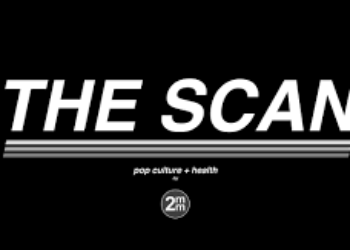Herpes zoster subunit vaccine safe and highly effective in adults over 70: The ZOE-70 trial
1. The herpes zoster subunit vaccine (HZ/su) demonstrated age-independent efficacy and significantly reduced the incidence of herpes zoster and postherpetic neuralgia (PHN) in adults over age 70.
2. Compared to placebo, the HZ/su vaccine was not associated with an increase in serious adverse events or potential immune-mediated diseases.
Evidence Rating Level: 1 (Excellent)
Study Rundown: Age is the most important risk factor for the development of herpes zoster and subsequent PHN, due to a decline in cell-mediated immunity. A live attenuated vaccine has been the mainstay of primary prevention against herpes zoster. However, the vaccine efficacy declines with age and is contraindicated in immunocompromised patients. The HZ/su vaccine is an experimental subunit vaccine that uses VZV glycoprotein E in combination with an adjuvant (AS01B). The efficacy of this vaccine was evaluated in a randomized controlled trial in adults ³50 years old and demonstrated a significantly reduced risk of herpes zoster. This study evaluated the effectiveness and safety of this vaccine in individuals ³70 years. The results indicated no decline in vaccine efficacy with age or any serious safety concerns. However, the vaccine group had higher rates of injection-site and systemic reactions. If these risks are balanced, the HZ/su vaccine may be of particular benefit to the older patient population with the greatest medical need. Limitations of this study include its mean follow-up time of 3.7 years; more time may be needed to determine the vaccine’s duration of effect.
Click to read the study, published today in NEJM
Relevant Reading: Efficacy of an adjuvanted herpes zoster subunit vaccine in older adults
In-Depth [randomized controlled trial]: This was a randomized, observer-blind, placebo-controlled, multicenter and multinational phase III trial involving a large cohort data from 13,900 (n=10,834, 70-79 years and n=3,066 ³80) adults ³70 years old. The primary endpoint was efficacy in reducing the incidence of herpes zoster compared to placebo. Secondary endpoints included the incidence of PHN, safety, and reactogenicity.
The incidence of herpes zoster per 1000 person-years was 0.9 in the HZ/su group and 0.2 in the placebo group, for an overall vaccine efficacy of 89.8% (95%CI 84.2 to 93.7; p < 0.001). Vaccine efficacy against PHN was 88.8% (95%CI 68.7 to 97.1%; p < 0.001). These results are similar to those in the ZOE-50 trial that evaluated efficacy in adults ³50. There was also no significant difference in efficacy between adults 71-79 years old and those ³80.
In the HZ/su and placebo groups, respectively; injection site reactions were reported in 74.1% (8.5% grade 3) and 9.9% (0.2% grade 3), and systemic reactions were reported in 53.0% (6.0% grade 3) and 25.1% (2.0% grade 3). The prevalence of serious adverse events (16.6% of HZ/su recipients and 17.5% of placebo recipients) and potential immune-mediated diseases (1.3% of HZ/su recipients and 1.4% of placebo recipients) were similar between the two groups.
Image: CC/Wiki
©2016 2 Minute Medicine, Inc. All rights reserved. No works may be reproduced without expressed written consent from 2 Minute Medicine, Inc. Inquire about licensing here. No article should be construed as medical advice and is not intended as such by the authors or by 2 Minute Medicine, Inc.






